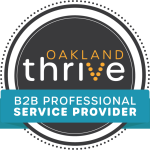Search Engine Optimization is an integral component of every digital content and strategy. Most people are searching for basic words and phrases online and don’t really write down the jargon that comes up in complicated articles about complex topics.
Google is the undisputed leader in the global search engine market and regularly makes changes to its search algorithms. Sometimes those changes favor one type of content over others and sometimes they make changes which prioritize certain types of content for certain regions. Thus, to improve the likelihood of certain content being found on Google and to allow it to get to the top of the SERPs, SEO strategies have to continuously be updated and aligned with trending practices.
The bottom line is that in order to rank on page one of Google, optimization is definitely required since organic rankings are extremely hard to achieve and aren’t realistic for each and every type of content. Here are a few ways you can optimize your content and the fundamentals behind the effectiveness of certain techniques and principles of SEO.
Understanding the needs of your Brand/Content
If you want your content to trend or to register highly on Google, you’ll need to understand the goals that you want to achieve. This is separate and different from wanting your blog post of video to trend on your school website. You need to understand what you want to be accomplished. If you’re writing or creating something related to cooking, you may want it to catch the eye of the internet communities which value the culinary arts.
You should also check out the competition. If you want to really register on a massive scale, you should check out what the opposing team is doing and rather than trying to emulate them, you should see why their videos work and why they’re reaching such massive audiences.
All in all, you need to look for three major things: how are you performing in the SERPs, who is your target audience and who are your competitors.
Perform an SEO Audit
With a thorough SEO audit, you can analyze your website for its strengths and weakness. This includes checking if your website has been optimized for easy navigation and great user experience. This is imperative because the look of a website is often the first thing people notice, not the content. If your website looks poorly made, people click off very quickly and don’t give it a second look. This is human nature, if something seems unappealing, people don’t waste time on it.
You should see if the website suffers from chronically slow loading times or bugs and if the website has too many ads or poorly placed ads that distract from the content and serve as an annoyance. If you’ve been hit with penalties from Google, it would be a good idea to get rid of them. This severely impacts your rating on the trending pages.
If you’re habitual of backlinking, make sure that they are from reputable sites so that your SEO count is higher.
An audit will identify all these problems so you can get to fixing them.
Google’s RankBrain Algorithm
Google is continuously incorporating Artificial Intelligence into its services. RankBrain is the latest in a long line of algorithms that it will use to optimize its search engine. It’s an AI-powered processing algorithm that uses machine learning to filter through millions of search results. It helps Google deliver the most relevant search results and matches user’s queries.
It’s smart enough to quickly devalue your content for keyword stuffing, so that won’t work anymore. In order to optimize your content for it, you need to create unique, genuine, and informative content that provides value to your target audience. This has not only been done as a part of Google’s campaign to sift through click bait but to make sure that its users get access to more interesting content.
It also prioritizes which sites enjoy the greatest user engagement, in terms of click-through rates, bounce rate sand reading times. That’s optimizing for greater experiences and not for a greater mention of keywords.
Find the Right Keywords
From prioritizing experience, we go right back to keywords. They’re important no matter what anyone says. No one is going to visit your website created around Johnny Depp if they’re just looking for a little information about Pirates of the Caribbean. It’s important to know that keywords and references to the actual material that you want your readers to latch on to are actually present within the content.
Sure, mentioning it in odd places and just putting the keywords in awkward places where they don’t belong doesn’t work anymore but that doesn’t mean that you have to get rid of the keywords altogether.
This just means that you’ll have to be better writers and look for keywords that more organically fit into your narrative. Optimize your content with a mix of local keywords, branded keywords, long-tail keywords, and short-tail keywords. Try to choose the keywords that have low competition, but high search volumes.
Create Good Content
Nothing can beat good old, great content. After all, something that trends organically becomes a bigger hit than anything that has ever been optimized. The song Despacito, or Gangnam Style were never supposed to be big hits outside of their target market but became the highest viewed videos worldwide because they were catchy tunes that everyone loved. The Harry Potter series was one in a long line of fantasy books that had come out in the last fifty years, yet it became such a big bestseller that it was the defining fantasy epic of our age.
On the internet, there are great ways to make people engage with interesting content. You should consider putting in a variety of content formats such as blog posts, infographics, GIFs, images etc. Making sure your content is seen in an interesting way is often much more important than the content itself.
You should also keep in mind that in August, Google announced that its new algorithm would favor trusted web pages over new ones or ones that have an authoritative flair to them instead of the ones that are simply rambling on like amateurs. This new algorithm is called Expertise, Authoritativeness, and Trustworthiness (EAT).
This is again, part of Google’s strategy to filter out the nonsense click-bait content and to focus on interesting content that has greater engagement with the people. It now considers EAT parameters for content, websites, and creators. Hence, you need to inject greater creativity, authority, and credibility into your content than before and not just focus on click bait and ways to con people into clicking your videos or blogs with catchy headlines.
Build Authoritative Back Links
If you want to rank well in SERPs, you also need to make sure that your audience sees you as trustworthy and authoritative. The best way to build authority and trust is through link building. Backlinks continue to be one of the strongest indicators of authority on Google, however, there needs to be a good link score or page rank associated with them.
You simply can’t afford to have low-quality backlinks in 2018. You need to make sure that they’re all trusted and highly ranked in your niche link back to your site. They’ll help you improve your rankings and drive referral traffic back to your site. You should also remove any low quality or toxic links that harm your site’s rankings.
Boost Page Speed
Google has always valued sites that load faster and don’t waste their user’s time. This is now prioritized in order to put sites on the first page of the search engine. Sites that deliver poor user experiences are likely to rank poorly in search results.
Google has now moved to a mobile-first indexing method, so speed is even more important. Most of the web is now being accessed through mobile platforms (smartphones, tablets, phablets, smart watches etc). Slow page speeds can have a negative impact on SEO, so you need to choose the right host and optimize your images, videos and content for speed. Don’t put in images that are extremely detailed or large, and reduce direct chains. You should also avoid putting in too many ads since Google doesn’t favor them and has tried to filter them out.
Install an SSL Certificate
Google values online security, so you should install a site-wide SSL certificate to make your website more secure for users. It also adds to the trustworthiness of your website, which Google prioritizes. Each site should also run on an HTTPS connection as it is, however it’s more important for sites that collect sensitive data. This includes passwords, debit and credit card details and other personal details. Google began to mark HTTPS sites as insecure in January 2017, and for good reason. Now your site’s ranking is affected slightly if you’re on the HTTPS server. If you haven’t made the move to it yet, you’re wasting time, get to it.
Use Schema Markups
These are powerful ways to optimize your website for SERPs. It’s basically a code that you put on your website to help search engines provide more informative search results to your users. These markups can make your web pages appear more prominently in SERPs for all kinds of content. You can also use data markups for articles, local businesses, restaurants, book review, and events.
In order to take full advantage of these markups, you should visit Google’s Structured Data Markup Helper and choose the type of data you want to markup. Then past the page URL and begin to tag. Highlight the important information by adding markup items and once you’re finished, create the HTML and add the created schema markup to your webpage.
Use SEO friendly URLs
In order to rank higher in search results, you should always use SEO friendly URLs throughout your website. One of the most important parts of a good URL is the readability it offers. If you’re stuck with a URL that is impossible to read and has a whole bunch of special characters and numbers attached to it, it won’t trend well on Google and people won’t bother memorizing it.
The URL should tell people clearly what they’re in for and what the website it all about. It should be easy to read for any reading level and should tell people clearly what they can expect from a blog post or a video.
Monitor Performance
Even the most well-planned strategies can go haywire if you don’t measure their impact. In order to optimize your website for the best results, you need to monitor your performance constantly.
You can use websites like Alexa or Pro Rank Tracker in order to get useful insights for your performance. These platforms help to track and monitor your site’s traffic, top performing content, and competition.
While Google Analytics gives a complete picture of your site traffic, Alexa’s competitive analysis tells you a bit more about what you may be missing. Pro Rank Tracker allows you to track your website’s rankings in search results over time. With detailed analytics like these, you can further make out what you can do to improve SEO results. You can solve issues as soon as they appear to minimize errors and cut down costs and drive more sales.
The best performing SEOs aren’t just keyword based; they consider all sorts of things that can affect a page or a video’s rankings. This helps to not only focus your content where it is supposed to be focused but also helps content trend in places where you never thought it would be successful.
The advent of artificial intelligence and neural networks has incentivized content that has multiple links and tags. This is not only due to the need for various sites and search engines to constantly keep users searching and clicking, but to take advantage of trending topics and siphon engagement. Think of the internet as a vast ocean with thousands of ships looking for land, while SEO is the lighthouse that guides each ship to its destination.






